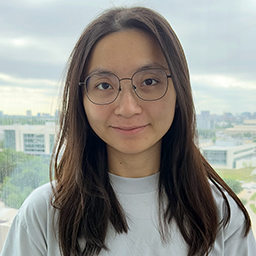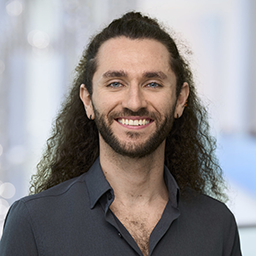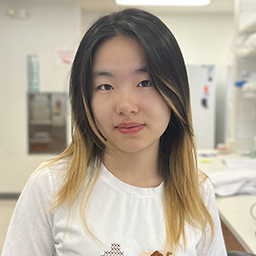Sprouts Grant Program
The O’Donnell Brain Institute Sprouts Grant Program is a highly competitive funding mechanism that gives trainees the opportunity to take an independent role in formulating and carrying out a new research question relevant to their ongoing study. Sprouts grants facilitate the collection of pilot data exploring novel ideas that are not easily covered by other funding sources. Funding is intended to encourage creative, high-quality research that also advances the training of young laboratory or clinical scientists and enhances the portfolio of OBI research.
Who is eligible? These awards support new ideas from trainees under the supervision of an OBI Investigators (e.g., a graduate student, postdoctoral fellow, resident, or clinical fellow.)
Am I eligible for a Sprouts award if my job title is not a traditional trainee title (e.g., postdoctoral fellow, graduate student, resident, or clinical fellow)? Sprouts awards are intended to support innovative, trainee-led research projects conducted under the supervision of an OBI Investigator. Eligible applicants are generally expected to hold traditional trainee positions, such as graduate student, postdoctoral fellow, resident, or clinical fellow. The committee may consider applications from individuals whose job titles do not align with these categories if the Principal Investigator provides a clear justification within the biosketch describing how the applicant meets the definition of a trainee. However, applicants should note that all previous Sprouts award recipients have held traditional trainee titles, and the selection committee may give priority to applications from those within these standard trainee categories.
What areas of research are eligible? All brain-related research areas are eligible, including both laboratory and clinical research. Preference will be given to proposals in the following areas:
- Cell and molecular mechanisms of neurodegenerative disease
- Delineation and/or modulation of normal and disease-altered brain circuit
What is the level of support? We will award up to five grants annually subject to availability of funds. The maximum total funding per project is up to $25,000.
See full details about eligibility and how to apply.
2025 Sprouts Grant Winners

Wei-Chen Chen, M.S.
Neuroscience Graduate Student, Chahrour Lab
Research: Characterizing the molecular function of KDM5A in the cortex

Justin Costello, D.O.
Radiology Fellow, Mastorakos Lab
Research: A novel minimally invasive method for dural immunophenotyping through endovascular sampling of the middle meningeal artery

Chad Dashnaw, Ph.D.
Postdoctoral Researcher, Joachimiak Lab
Research: Thermodynamic and structural characterization of superoxide dismutase-1 amyloid

Irvin Garza
Genetics, Development, and Disease Graduate Student, Gray Lab
Research: ML-GuiDE AAVs: Machine learning guided evolution of AAV capsids for neurological gene delivery

Xinyue Han, Ph.D.
Postdoctoral Researcher, Nian Wang Lab
Research: Building whole-brain cell type atlas and predicting Alzheimer's disease using high-resolution diffusion MRI

Ruining "Rae" Hu, M.S.
Neuroscience Graduate Student, Choi Lab
Research: Elucidating the circuit mechanisms for somatosensory regulation of sleep

Katerina Konstantoulea, Ph.D.
Postdoctoral Researcher, Louros Lab
Research: Acoustic biosensors as non-invasive reporters of tau aggregation in Alzheimer's disease

Ruchita Mahesh Kumar, M.S.
Biomedical Engineering Graduate Student, UT Southwestern and The University of Texas at Dallas
Research: Closed loop neuromodulation controller for memory: A pilot study

Zhen Tang
Immunology Graduate Student, Yan Lab
Research: "On-demand" lysosomal damage to induce neuroinflammation
2024 Sprouts Grant Winners

Navid Ardestani, M.D., Ph.D.
Neurology Resident, Stuve Lab
Research: Characterizing the effects of antiCD317 monoclonal antibody treatment of CD88+CD317+ BMC on a relapsing model of EAE among SJL/J animals

Nil Saez Calveras, M.D.
Neurology Resident, Diamond Lab
Research:Unraveling the basal-ganglia thalamocortical loop: Tagging, modulation, and context-specificity of motor programs in zebra finches

Mandy Eckhardt
Graduate Student, Stroud Lab
Research:Characterizing the role of BEND6: a novel neuronal DNA methylation recognition factor

Rahulraj Mishra, M.S.
Graduate Student, Roberts Lab
Research:Unraveling the basal-ganglia thalamocortical loop: Tagging, modulation, and context-specificity of motor programs in zebra finches

Bangjie Wang, M.S.
Graduate Student, D’Mello Lab
Research: Exploring language system reorganization pediatric cerebellar disruption through high-resolution neuroimaging
